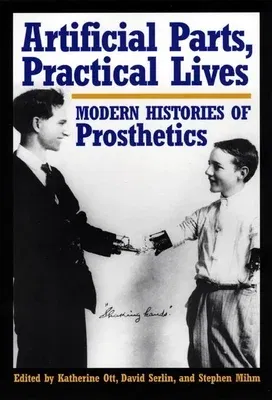Artificial Parts, Practical Lives: Modern Histories of ProstheticsHardcover, 1 April 2002

Qty
1
Turbo
Ships in 2 - 3 days
In Stock
Free Delivery
Cash on Delivery
15 Days
Free Returns
Secure Checkout

Print Length
359 pages
Language
English
Publisher
New York University Press
Date Published
1 Apr 2002
ISBN-10
0814761976
ISBN-13
9780814761977
Description
Product Details
Book Format:
Hardcover
Country of Origin:
US
Date Published:
1 April 2002
Dimensions:
23.42 x
16.21 x
2.84 cm
ISBN-10:
0814761976
ISBN-13:
9780814761977
Language:
English
Location:
New York
Pages:
359
Publisher:
Weight:
603.28 gm